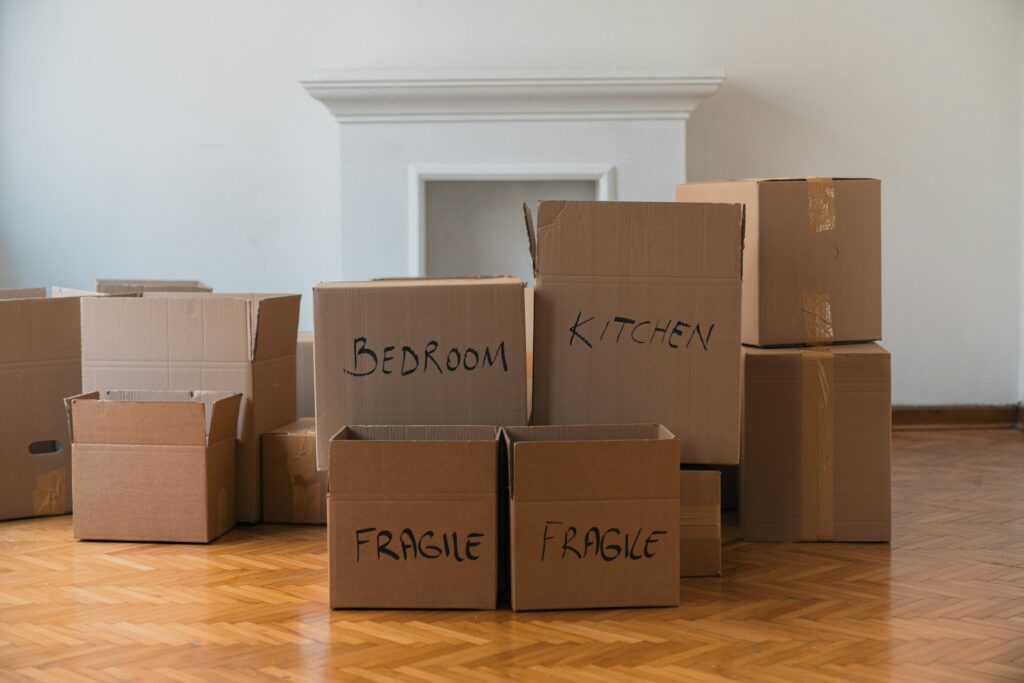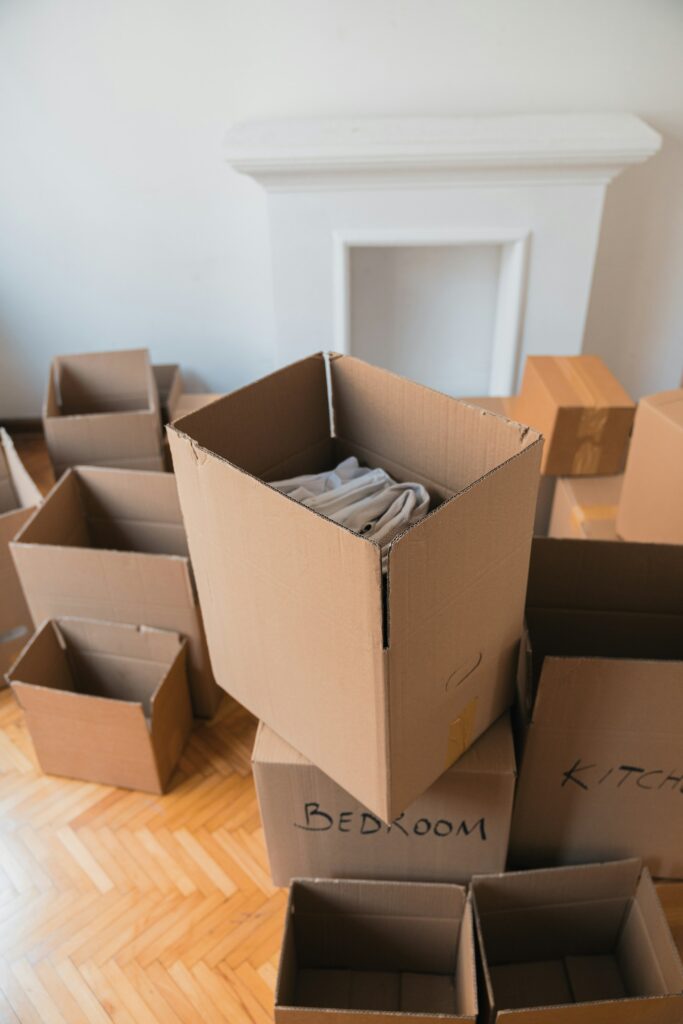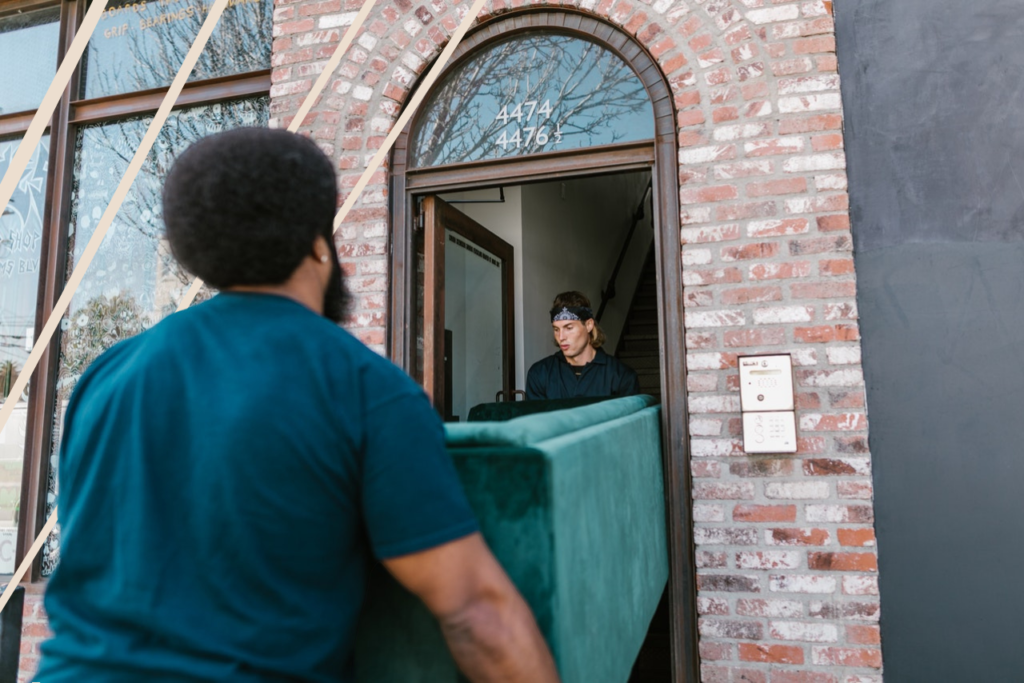Dealing with the hands-on side of moving house is stressful enough – what to label those miscellaneous wires, how to tell your partner that their cherished ‘sculpture’ isn’t coming with you – let alone having to worry about the money side of things.
You don’t want to start the moving process on the front foot only to find that financial hurdles are waiting to trip you up before you’ve properly moved in. To help you manage things as mindfully as possible, and to avoid any last minute dramas, here’s our guide on how to manage the mounting costs of moving house.
Start With The Essentials
Before diving into boxes and bubble wrap, you need to get your financial ducks in a row. Moving house involves a web of costs beyond just shifting your belongings from A to B. Make sure you’ve accounted for:
- Mortgage arrangement fees and deposits
- Stamp duty (if applicable)
- Solicitor’s fees and searches
- Surveys and valuations
- Estate agent fees (if selling)
Once you’ve wrapped your head around these bigger figures, you can plan your actual moving budget more realistically.



Moving Day Matters
Professional Removals vs DIY
While your mate with a van might seem like a budget-friendly option, professional removals often prove their worth, as the experienced long distance movers in Ontario LDM tell us. As they explain, such specialists bring expertise, proper insurance, and enough tea-fuelled muscle to handle everything from your grandmother’s antique dresser to that awkward corner sofa you regret buying.
Ideal Tip: Look for removals companies registered with the British Association of Removers (BAR) or the National Guild of Removers and Storers (NGRS). Get at least three quotes, and don’t forget to check reviews – previous customers’ horror stories (or glowing praise) can be very telling.
Timing is Everything
Moving costs can vary significantly depending on when you move. Weekends, bank holidays, and end-of-month dates typically come with premium rates. If you can be flexible, mid-week and mid-month moves often cost less.
Ideal Tip: Some removals companies offer substantial discounts for off-peak moves. If you’re working from home or can take a strategic day off, a Tuesday move could save you a pretty penny.
The Great Pre-Move Clear-out
Remember that weightlifting bench gathering dust? Or the ‘vintage’ armchair that’s really just old? The more you move, the more you pay, so channel your inner Marie Kondo before packing begins.
Ideal Tip: Turn your unwanted items into moving funds by selling them online. Whether it’s Facebook Marketplace, Vinted, or good old eBay, one person’s tired furniture is another’s treasure-hunting triumph. Or take things to your local charity shop and help out a good cause.


Hidden Costs To Consider
Insurance Matters
Don’t assume your existing home insurance covers the move. Check your policy and the removals company’s insurance coverage carefully. Items you pack yourself might not be covered, and some policies have specific requirements about how things should be packed.
Ideal Tip: Take photos of valuable items before they’re packed and keep a detailed inventory of what’s in each box. If you’re packing expensive electronics or valuables yourself, check if your home insurance offers an add-on moving cover – it’s often cheaper than the removals company’s extra insurance.


Digital Admin
While sorting your physical belongings, don’t forget your digital life needs moving too. Mail redirection through Royal Mail costs ‘just’ £39.50 is essential for security, and you’ll want to update your address across various services and subscriptions.
Ideal Tip: Create a spreadsheet of all your subscriptions and regular deliveries. It’s amazing how many things are tied to your old address – from your Amazon account to your wine club membership.
The Clean Sweep
If you’re renting, professional end-of-tenancy cleaning might be unavoidable. Even if you’re selling, leaving the property spick and span is good karma (and often expected).
Ideal Tip: If professional cleaning is required, book well in advance and ask if they offer a guarantee that satisfies your landlord’s requirements.
Settling In Costs
Utility Smart Moves
Moving home is the perfect time to reassess your utility providers. Don’t automatically stick with the previous occupants’ suppliers or transfer your existing contracts without shopping around.
Ideal Tip: Use comparison websites to find the best deals, but watch out for exit fees from your current providers. Sometimes it’s worth waiting for contracts to end naturally.

Council Tax Considerations
Your council tax band might change with your move. Check your new property’s band early and factor any differences into your budget. Don’t forget to close your account at your old address and set up payment at the new one.
Ideal Tip: Check if you qualify for any discounts at your new property – like single person occupancy (25% off) or student status. Also, if you think your new property’s band is incorrect, you can challenge it through the Valuation Office Agency. Just be aware the review could move the band up as well as down!
Smart Home Setup
Consider this your chance to make your new home smarter and more energy-efficient. While there might be upfront costs for things like smart thermostats or LED bulbs, they could save you money in the long run.
Ideal Tip: Check if your energy provider offers free smart meters or energy-saving devices to new customers.


The Bottom Line
Moving house is like a financial obstacle course – there are hurdles at every turn, but with proper planning and a bit of savvy, you can clear them all without tripping up. The key is to start planning early, expect the unexpected, and always keep a contingency fund for those “just in case” moments.
Now, when’s that housewarming party? (Just remember to factor in the cost of all those drinks – your friends haven’t forgotten about that time you borrowed their van!)




